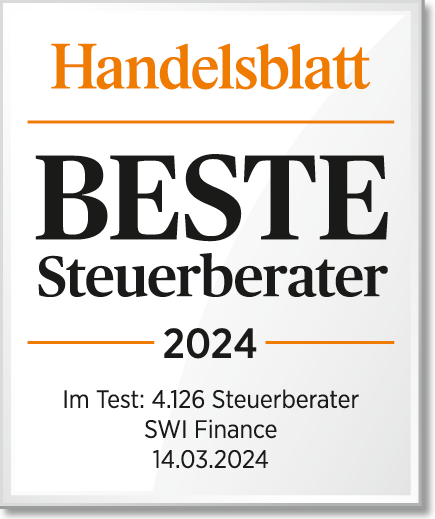- Companies
- International tax law
- Design & documentation of transfer prices
- Use of tax losses from home and abroad
- Annual financial statements - used strategically correctly
- Immigration step-up, a company moves to Germany
- Tax liability for sole proprietorships and partnerships
- Tax liability for Swiss corporations
- Permanent establishment
- Taxes in China
- International sales tax
- International employees
- Differences in labor law, tax law, social security law
- Working in the home office international
- Tax liability of employment income according to DTA
- Income tax for cross-border commuters, domicile abroad, without an employment contract
- Working in the employer's business premises
- Shares in partnerships and corporations
- Company formation/start-up
- Management consultancy
ServicesWith our work, we help our customers create long-term value and support them in growing responsibly and shaping digital change. We rely on data and the latest technologies in our services. - International tax law
- private customers
- Living & working abroad
- EU-Germany-Switzerland
- Taxation of the earned income of EU foreigners in Switzerland
- Tax liability in Switzerland
- Is it worth moving to Switzerland?
- Cross-border commuters between Germany and Switzerland
- 60-day rule in the DBA Germany-Switzerland
- Managerial staff Germany-Switzerland
- Income as a director
- Child benefit in cross-border cases
- Swiss AHV system / income tax
- Additional taxation between Germany and Switzerland
- Taxation in the digital world
- Life in China
- Purchase and financing of land, defense against enforcement
- Family & inheritance law, inheritance tax
IndustriesWith our work, we help our customers create long-term value and support them in growing responsibly and shaping digital change. We rely on data and the latest technologies in our services. - Country overview
CareerWe bring exceptional talents together to advance things together and make them significantly better.
- Rates
- office software
- Contact
- About Us
- Blog
Financial authorities around the world ensure that no profit shifting occurs as a result of goods and services between affiliated companies being shifted from one country to another through targeted price agreements.
In order to counteract this and enable controls, standards were created according to which companies must explain what considerations they were guided by when setting their prices. In Germany, the legal obligations are regulated in the tax code and the foreign tax law AStG. The AStG was comprehensively redrafted, partly with effect from July 1.7.2021, 1.1.2022, and partly with effect from January 14.7.2021, XNUMX. The Federal Ministry of Finance responded promptly and fundamentally revised the “Administrative Principles of Withholding Tax Procedure” in a BMF letter dated July XNUMX, XNUMX. The new guidelines must be applied to all pending procedures, which amounts to a de facto retroactive effect.
For companies, this means that they should deal with the new principles, especially with regard to current or future tax audits, and, if necessary, also re-examine completed years. This can be worthwhile both in terms of legal certainty, including in the other countries involved, and financially. The consequence of not recognizing transfer prices either leads to a one-sided correction of results and thus to real double taxation if the other country does not change the old decisions accordingly.
Otherwise, the non-recognition of transfer prices is always an issue that the German tax authorities like to use to accept and tax hidden profit distributions. Since tax audits regularly take place over several years and in the meantime additional years go by, the non-recognition of transfer prices regularly has a very explosive impact. At the same time, transfer prices or their correction are also an effective instrument for offsetting tax losses in one country with taxable profits in the other country and thus saving taxes.
The arm's length comparison will primarily be decisive for the design of settlement prices in business with related companies. If this is not possible, the company must describe the specific business relationship using a qualified risk and functional analysis.
The most important thing about documentation for designing transfer prices is the story, i.e. the description of the reasons why you created a foreign relationship in the first place, why you deal with the affiliated company internally in this particular way and not differently, who has which competencies, which specific ones in the business relationship has opportunities and who bears which risks. It’s about the approach in short”risk & function” . Based on this, the methods that lead to the most appropriate result possible are examined. Transfer pricing documentation is therefore not a price list for goods or services. The documentation describes why this method and no other method is considered to be applicable and what range of percentage surcharges you want to use.
According to German law, as well as most other legal systems, an investigation and documentation must be carried out into the relevance of the so-called standard methods developed by the OECD. It's like a math exam. Simply writing down the result is not enough; the result must be derived. Therefore, the standard methods in question must be discussed in the documentation even if they are not ultimately used.
The financial administration naturally has a lot of data and therefore an industry-specific overview of who achieves which returns on sales. The taxpayer does not have this data. In order not to fight with unequal weapons, you have no choice but to get a specific database analysis if necessary, i.e. spend money on an expert report. The result is a benchmark analysis. The data from comparable companies is analyzed and a range of results achieved between external third parties is presented. Anyone who moves their company within this range can defend their transfer prices to the tax office. If you can't do that, you need good arguments and a strong tax advisor to avoid going under.







